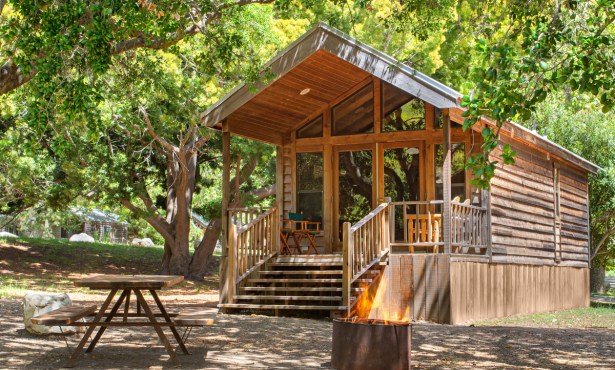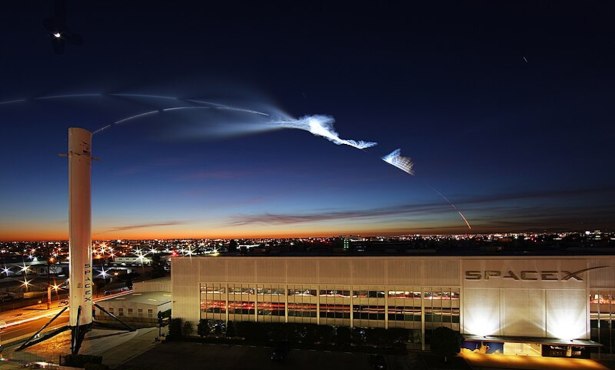Documenting the Disaster
Santa Barbara Film Crews Report from the Gulf of Mexico
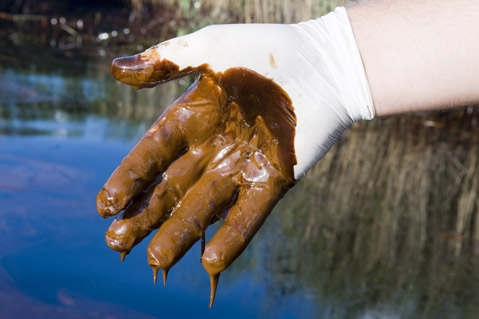
When Jean-Michel Cousteau and his film crew arrived in the Gulf of Mexico shortly after the explosion of BP’s deepwater oil rig, they had no idea they were witnessing the biggest environmental disaster in the history of the continental United States. Cousteau and his Santa Barbara-based Ocean Futures Society — a marine education and preservation nonprofit — were one of the first groups to document the spill, and they are now back onsite and in the midst of filming a feature on how the oil (and the dispersants used to mitigate it) are affecting the ocean’s ecology and the area’s economy.
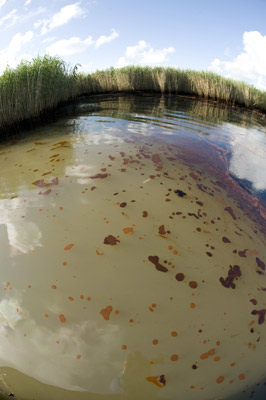
With cinematographers donning full suits and jumping straight into the thick slicks, the eight-person Ocean Futures crew was able to see firsthand how the seepage is hurting aquatic critters big and small. “Just a few days ago there were mother dolphins breast-feeding their babies in the oil,” said Cousteau, son of ocean adventurer and researcher Jacques Cousteau. “That’s what we are responsible for.”
It’s been almost three months since the Deepwater Horizon rig exploded — killing 11 people and tearing a gash in the seabed — and Cousteau expressed worry about not only the ever-flowing oil but also the chemical dispersants deployed to dilute it. “It’s not just the oil — the chemicals in the dispersants are affecting the water column from the base of the food chain, which is plankton, all the way up to the ocean surface,” he said. “It’s devastating the entire aquatic environment.”
Cousteau also touched on economic impacts of the disaster and how it’s affecting those who live along the Gulf’s coast. “There are tens of thousands of people out of work,” he said. “There is an entire industry dependent on the ocean being put out of business. The most tragic thing I saw,” he went on, “was looking at the face of one of the fishermen who had lost his job on the sea forever. I think of his family and his kids. They are not allowed to fish. This is something they’ve been doing for five, six, seven generations.”
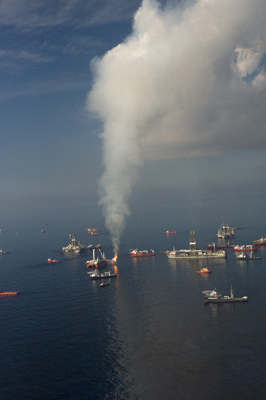
Cousteau pointed out that the oily water threatens to kill the entire commercial and sport fishing economy of the southernmost coast of the U.S. “Thirty percent of all the seafood we eat in the U.S. is provided by the fishermen on the Gulf Coast. The marine life in this area will be affected for decades.”
Michael Hanrahan — president and cofounder of The Ocean Channel, a local Internet-based media company — also traveled to the Gulf, photographing and filming the underwater oil slick that is now approaching the size of the Great Lakes. “The temperature was 90 degrees and the humidity was 100 percent,” he said. “We dove in with cameras and swam from underneath the dark, black current of oil puddled thick on the top of the water,” he went on. “When a wave would roll across the ocean and open up the water into blue sunbeams, it was an eerie kind of beauty.”
Hanrahan also said that the “dead zones” in the ocean are rapidly increasing. “The naturally occurring aquatic bacteria that biologically break down the oil require oxygen,” he said. “But that process can strip an area of the ocean of oxygen and create dead zones,” he explained.
Beyond recognizing the imperative need to stop the relentlessly leaking oil and cap the earth’s crust at the bottom of the sea, Cousteau’s ideas for the future include the creation of a non-biased, economically independent, international commission that oversees all new oil drilling. “The commission has to be totally independent and not under pressure from money or politics.” Beyond a regulatory agency that scrutinizes the safety of oil drills, Cousteau suggests, “We need to set aside a percentage of the profits oil companies are making for the development of renewable energy.
But the ultimate solution, according to Cousteau, belongs to us. “We are all consumers, and if we lower our unnecessary consumption, then we raise our quality of life. In essence, our conservation means we can make money with the same income … Remember little things by the millions make a big difference.”


